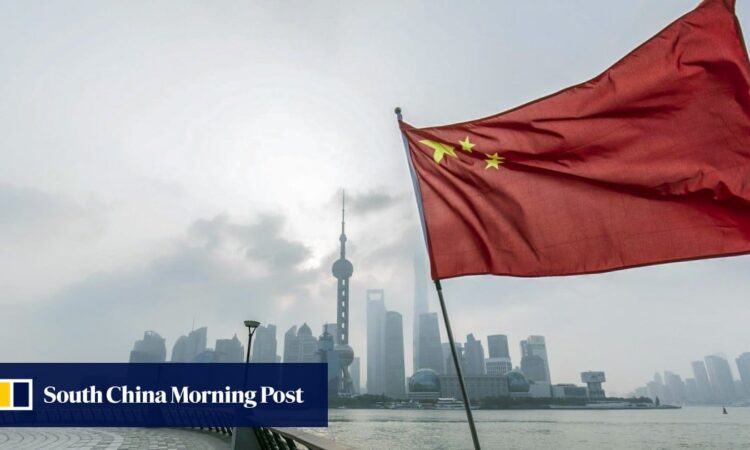EU chamber in China intent on getting Beijing to ‘move the needle’ as ideology curtails commerce

China’s zero-Covid policy remains one of the most prominent factors eroding optimism, and this necessitates a well-communicated strategy from policymakers, Wuttke said.
“Now we have the situation [where] we can easily see our executives flying around the world, whereas I can hardly leave my doorstep because I might go into a restaurant that all of a sudden has a lockdown,” said Wuttke, who is based in Beijing.
“We need to go through this very difficult winter, in a manner that does not harm this investment situation in China more than it has already, because what we worry [about] as businesses is uncertainty, and a sentiment change. We need a real booster when it comes to sentiment.”
We still have faith that our ideas will actually get into the discussions of the government and will move the needle in a way
The mounting challenges of operating in the world’s second-largest economy are driving many European multinationals to reduce, localise and isolate their China operations, the chamber said in its annual position paper.
The European Union is the second-largest destination for Chinese exports, with trade amounting to US$828 billion last year.
It is also the third-largest source of foreign direct investment in China following Hong Kong and Singapore, investing US$5.1 billion in 2021, or 3.5 per cent of the total.
Wuttke’s fresh comments also reiterated the group’s adamance on the need for Beijing to avoid erratic policy shifts, to be less politicised in its decision-making process, and to rebuild investor confidence with comprehensive reforms and opening up.
“We still have faith that our ideas will actually get into the discussions of the government and will move the needle in a way,” Wuttke added. “I hope that, over the next [few] years, we will be able to disseminate this and find open ears.”
His comments came a month after the 20th party congress raised concerns among foreign investors and stoked uncertainties over China’s future economic policies.
Confidence among foreign businesses has been chilled by China’s restrictive zero-Covid policy, economic and regulatory challenges and volatile travel restrictions, in addition to worsening bilateral ties amid rising geopolitical tensions.
China has rolled out a sequence of efforts to reassure foreign investors, and has pledged to encourage foreign capital to flow into the Chinese market – especially into manufacturing sectors, as Beijing continues to prioritise industrial and supply-chain security.
Last month, the National Development and Reform Commission expanded the list of sectors open to foreign investment to 519, up from 480, following a meeting intended to tout China’s opening up and to rally sentiment.






